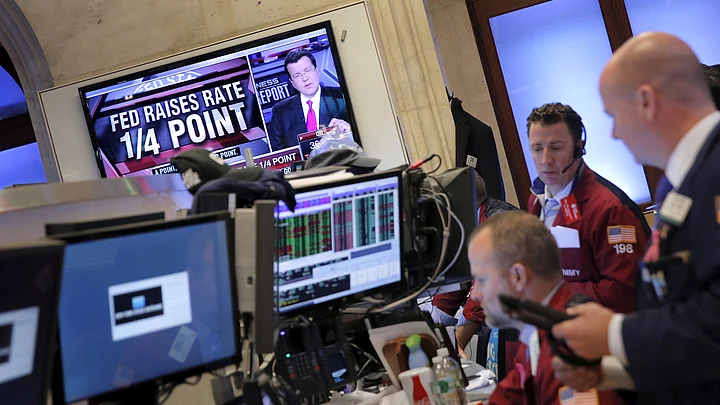After keeping global financial markets on the tenterhooks for nearly a decade, US Federal Reserve Chair Janet Yellen finally bit the bullet on Wednesday, as was widely predicted. World markets have cheered the move as it was widely priced in. Everyone knew that a December hike was coming and what the quantum of the hike could be.
First, lets take a look at what the Fed’s latest policy announcement means for global markets.
Positive for Indian IT Firms
The US economy has, to a large extent, recuperated from the 2007-2009 financial crisis despite some lingering concerns on inflation and unemployment front. This is positive especially for Indian IT, as IT budgets of US companies will now expand and demand will grow.
Markets Were Well Prepared
The Fed has learnt its lesson from the taper tantrum, when its policy decisions sent shockwaves across global markets. This time, Fed officials prepared the markets well, as Yellen hinted repeatedly that a December hike is likely. The result is there for all to see in the cheerful welcome that almost all asset classes have accorded the rate hike.
Gradual Pace of Future Hikes
Yellen also promised a “gradual” pace of rate hikes in 2016, which was an area of uncertainty among global investors and fund managers.
With inflation remaining stubbornly below the 2 percent target, the Fed stated that it will keenly monitor it before deciding its next move. This is good news for financial markets, as they will have enough time to prepare for the next hike.
But, what does the hike mean for India and should we be worried. Officials in the Finance Ministry have been quick to point out that the impact, if any, on India will be “minimal”. But will there be repurcussions in the long term?
Investors May Pull Out Money From India
Higher interest rates will make the US markets more attractive to foreign investors. Consequently, global funds could shift money parked in India and other emerging markets to the US in expectation of higher returns in the months to follow. Any major outflow of foreign funds from India can adversely affect the equity markets as well.
Rupee May Weaken
The rupee’s value against the dollar is determined primarily by whether dollars are coming in or going out of India. Now that the Fed has hiked rates, the demand for dollars to move away from India will rise, weakening the rupee. A weak rupee could imply the following:
- Imported goods (like computers, imported mobile phones etc) could get costlier. It could also offset the gains from a decline in crude oil prices.
- Students will end up paying more by way of student loans, to buy dollars to pay for fees, even though the fee in dollar terms will remain unchanged.
- Similarly, foreign travel could also become costlier.
- EMIs won’t be cheap any more as the RBI will be hesitant to cut rates further.
- Companies that borrowed dollars from overseas banks will be the worst hit as repaying loans will become costlier.
- A weaker rupee could fan inflation further.
(At The Quint, we question everything. Play an active role in shaping our journalism by becoming a member today.)
